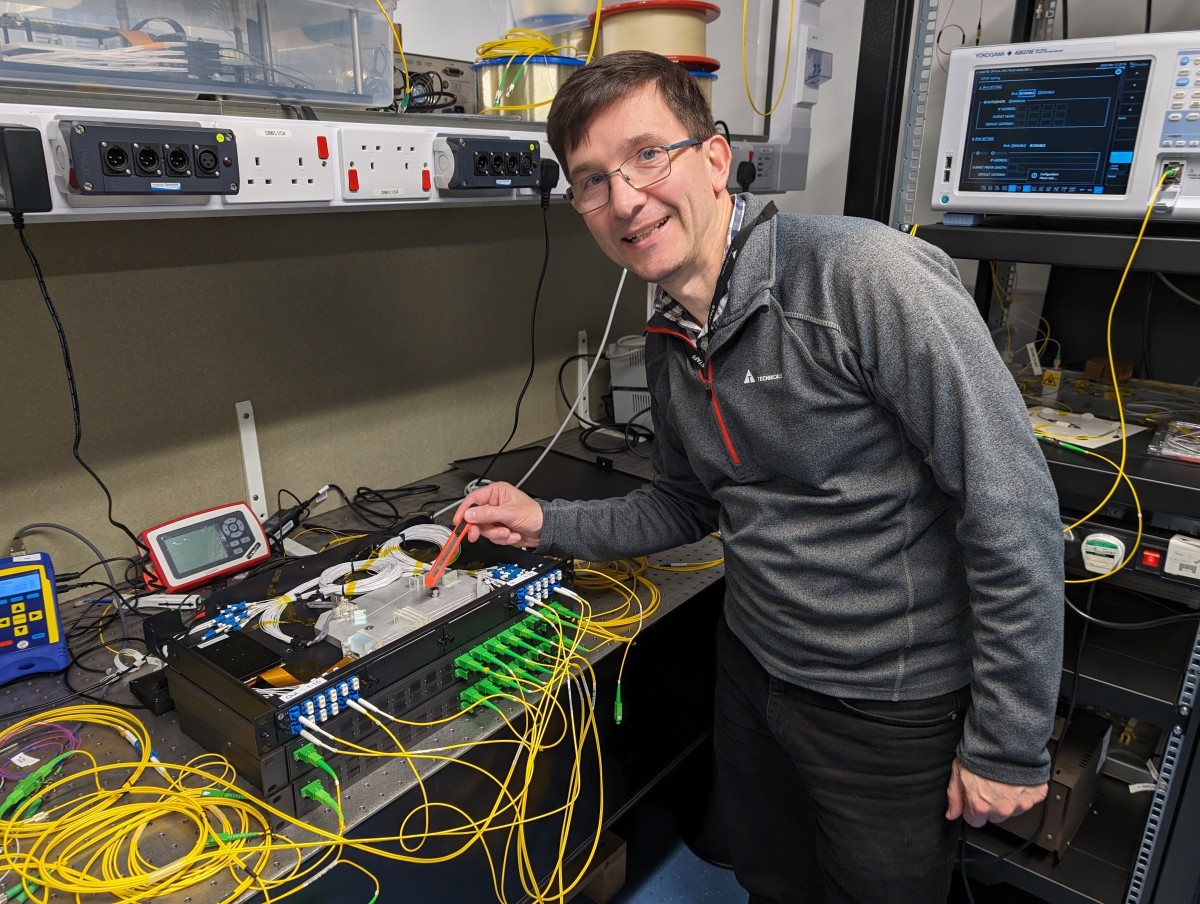Aston University researchers are part of a team that has sent data at a record rate of 402 terabits per second using commercially available optical fibre.
This beats their previous record, announced in March 2024, of 301 terabits or 301,000,000 megabits per second using a single, standard optical fibre.
"If compared to the internet connection speed recommendations of Netflix, of 3 Mbit/s or higher, for a watching a HD movie, this speed is over 100 million times faster.
The speed was achieved by using a wider spectrum, using six bands rather than the previous four, which increased capacity for data sharing. Normally just one or two bands are used.
The international research team included Professor Wladek Forysiak and Dr Ian Philips who are members of the University’s Aston Institute of Photonic Technologies (AIPT). Led by the Photonic Network Laboratory of the National Institute of Information and Communications Technology (NICT) which is based in Tokyo, Japan it also including Nokia Bell labs of the USA.
Together they achieved the feat by constructing the first optical transmission system covering six wavelength bands (O,E,S,C,L and U) used in fibre optical communication. Aston University contributed specifically by building a set of U-band Raman amplifiers, the longest part of the combined wavelength spectrum, where conventional doped fibre amplifiers are not presently available from commercial sources.
Optical fibres are small tubular strands of glass that pass information using light unlike regular copper cables that can’t carry data at such speeds.
As well as increasing capacity by approximately a third, the technique uses so-called “standard fibre” that is already deployed in huge quantities worldwide, so there would be no need to install new specialist cables.
As demand for data from business and individuals increases this new discovery could help keep broadband prices stable despite an improvement in capacity and speed.
Aston University’s Dr Philips said: “This finding could help increase capacity on a single fibre so the world would have a higher performing system.
“The newly developed technology is expected to make a significant contribution to expand the communication capacity of the optical communication infrastructure as future data services rapidly increase demand.”
His colleague Professor Wladek Forysiak added: 'This is a 'hero experiment' made possible by a multi-national team effort and very recent technical advances in telecommunications research laboratories from across the world'."
The results of the experiment were accepted as a post-deadline paper at the 47th International Conference on Optical Fiber Communications (OFC 2024) in the USA on 28 March.
To help support some of its work in this area Aston University has received funding from EPSRC (UKRI), the Royal Society (RS Exchange grant with NICT) and the EU (European Training Network).







